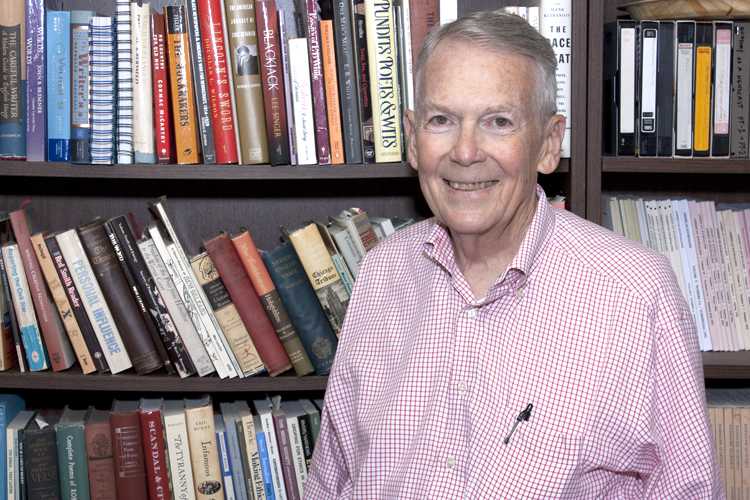No newspaper is safe from the critical eye of mass communication professor Alfred L. Lorenz.
Whether it’s a dangling modifier or the wrong form of “alumni,” Lorenz will talk about it in class and bring it to the attention of the editors.
Last week, it was a headline in The Times-Picayune.
“You don’t close things anymore—you shutter them,” Lorenz said. “How the hell do you shutter the spillway?”
This may have given Lorenz, who retires this month after teaching at Loyola for almost 30 years, a reputation as a strict professor, but former students said they appreciate the criticism they have received from him.
“He was someone who demanded perfection from students,” said Danny Monteverde, A’08 and former Maroon editor.
Monteverde, now a reporter at The Times-Picayune, said he still receives e-mails from Lorenz about the stories he writes.
“If you do well, he’s going to let you know, and if you don’t do well he’s going to let you know as well,” he said.
Lorenz worked at the National Broadcast Desk of United Press International, a wire service likened to the Associated Press, covering events like the Cuban Missile Crisis and the assassination of President John F. Kennedy, before he decided to go to graduate school at the University of Southern Illinois in 1964.
There, he got both his masters’ and doctorate degrees in journalism and went on to teach at his alma mater, Marquette University, for 12 years. He then worked for a year as the department head at New Mexico State University, but he said he didn’t enjoy working at a large university.
“There really is a different feel generally about a university like this one from a big state university,” he said.
He was searching for someone to fill a position at the university when he interviewed a Loyola professor, who informed him of an opening there as chairman of the journalism department.
“In 1981, thank God, I came to Loyola,” Lorenz said.
During his time at Loyola, Lorenz has worked both as professor and administrator, serving as the interim dean of the College of Social Sciences after Hurricane Katrina. Last year, he received the Dux Academicus Award, the highest honor given to a Loyola professor.
One thing Lorenz said he has enjoyed about teaching is going to classes where students are enthusiastic about the subject and work hard at it.
“There is nothing more frustrating than when they don’t seem to care, don’t seem to connect,” he said.
He said he remembers his first year of teaching, when he taught two communication writings courses: one class was engaging while the other showed little passion.
“I couldn’t ignite them,” he said. “I could have danced naked on the desk, and they would have just looked at me.”
Former students said they remember his storytelling in class and his enthusiasm for journalism.
“Being in Lorenz’ class is like going to hear your grandfather tell an elaborate story or going to a play,” said Katie Urbaszewski, mass communication senior, who took Lorenz’ History of Journalism class last spring.
“He kind of holds us to that standard of old-school journalism,” she said. “I think he just expects us to have that kind of respect it demands.”
Lorenz said he hopes to complete at least three books after he retires, and possibly do some part-time teaching.
Although he has a lot he wants to work on, he said he would miss walking through campus every day.
“There is an energy on campus that you don’t have in an office downtown,” he said. “You walk out of here and there is a life and there is an energy that is just a delight to be a part of.”
Masako Hirsch can be reached at mmhirsch@loyno.edu








